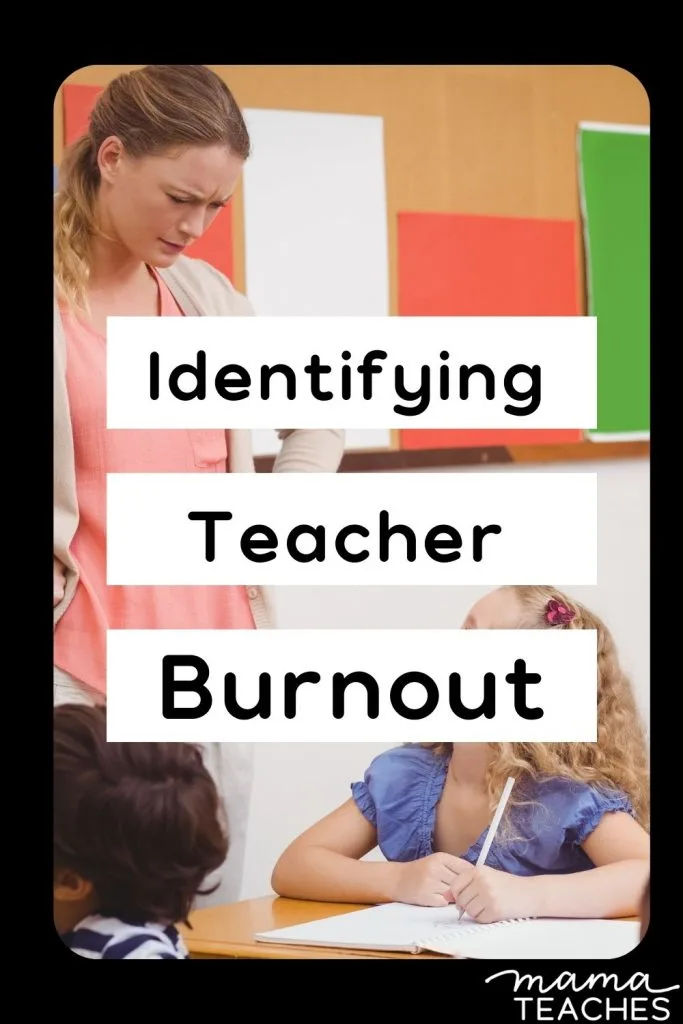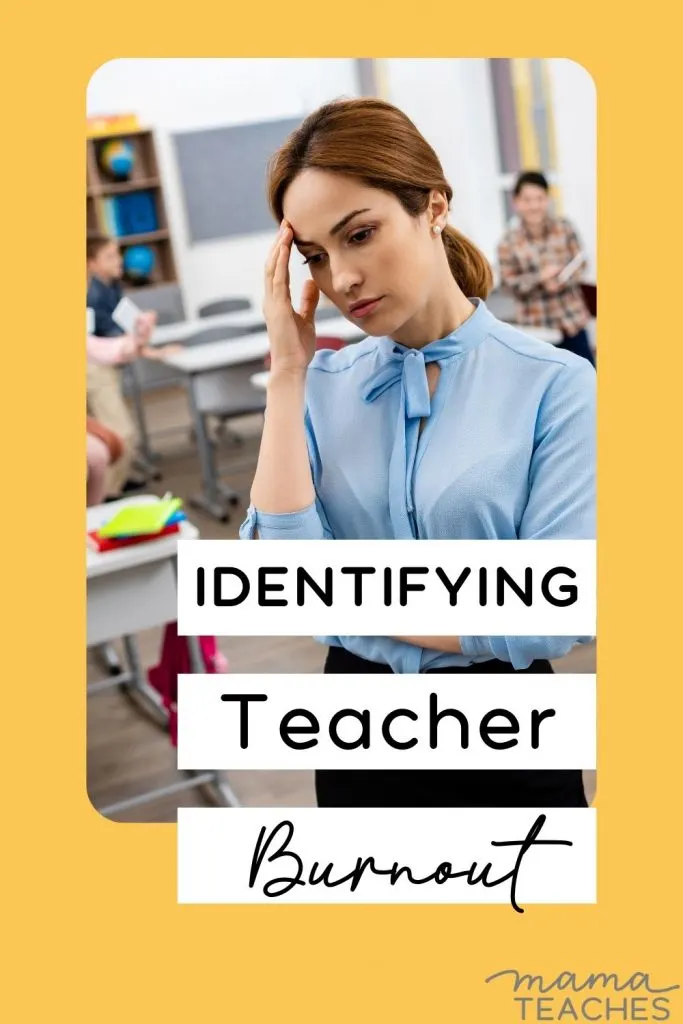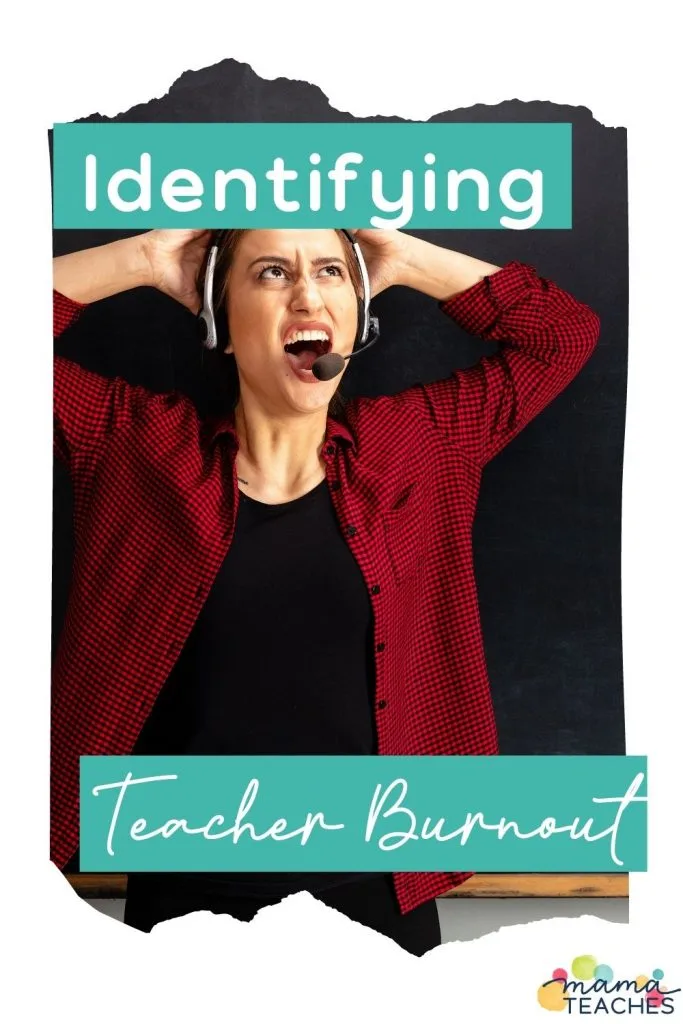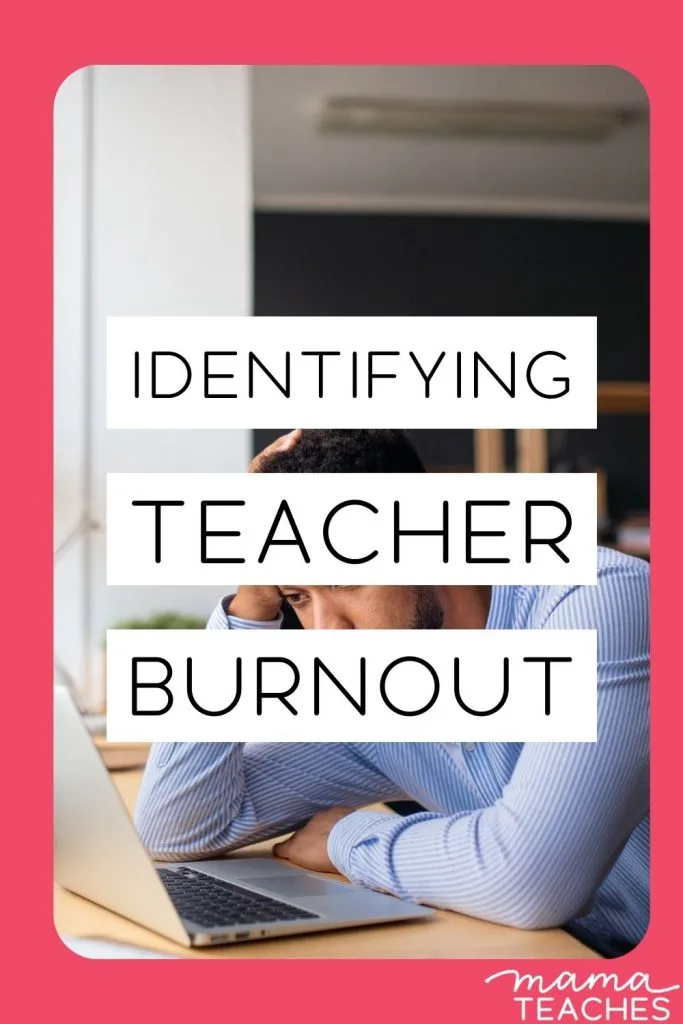Are you suffering from teacher burnout?
Learn how to spot it, and what your next steps should be.

This article contains affiliate links to things that you might like.
Symptoms of Teacher Burnout
You have the skills, the training, and a love for educating students, but teaching doesn’t feel like it used to.
What is happening?
You may have teacher burnout.
Teacher burnout symptoms can vary widely.
Read this list below to see if any of them resonate with you.
Excess Anxiety
Do you wake up with a sense of dread, like you don’t have what it takes to meet the demands of the day?
Are you worried or anxious?
Do you fret over decisions you used to make easily?
Do you replay conversations or situations in your head (concerned you said or did the wrong thing)?
Lack of Joy
Do you feel no zing when a student finally gets a concept?
Have you stopped finding pleasure in the little things, like your first cup of coffee or your favorite song?
Do you feel like the passion you had for your job is gone?
Short Fuse
Does your temper flare at the slightest provocation?
Are you snapping at your students (or even your own kids at home)?
Do you find yourself feeling overly angry at small causes?
Feeling Hollow
Maybe you don’t feel happy or sad or angry…maybe you feel nothing at all.
Do you have a sense of feeling hollow, like you are only a shell of your former self?
You feel listless and apathetic and have little motivation.
You just don’t care anymore.

Social Withdrawal
If you are experiencing teacher burnout, you may find that you are withdrawing from relationships in your life.
You may not find the same level of enjoyment in hanging out with friends, or you may simply lack the energy to invest yourself in your relationships.
Increased Alcohol Use
Increased alcohol use can be a symptom of teacher burnout if you use it to numb your feelings and quiet your mind.
Exhaustion and Fatigue
If your stress level is keeping you up at night, you likely feel exhausted during the day.
Even if you are getting enough sleep, you may find yourself haunted by fatigue (you simply lack energy and tire easily).
It may even get to the point where you feel dazed as if you could pass out.
Exhaustion and fatigue are both symptoms of teacher burnout.
Stomach Aches or Nausea
Teacher burnout can go hand in hand with anxiety, and anxiety can manifest itself physiologically with stomach upset.

Other Causes That Look Like Teacher Burnout
As you see from the above list of symptoms, many of them are physiological in nature.
They may not stem from teacher burnout.
You could have a health issue causing your exhaustion, stomach aches, and listlessness.
These could include changing hormone levels, anemia, chronic depression, or sleep apnea (just to name a few).
You should always see your doctor if you are suffering from physical or mental symptoms so that together you can determine the correct cause.
Ways to Help Teacher Burnout
If you are experiencing teacher burnout, there is one drastic solution: leave the profession.
Before you take that giant step, consider these alternatives.
Self-Care
Are you taking care of yourself?
Self-care for teachers isn’t a luxury, it’s a must.
We’ve got lots of ideas here.

Start Journaling
It sounds too easy, but getting your feelings out on paper can help a lot!
Here are some tips for using journaling to combat teacher stress.
Change in Scenery
Sometimes changing your environment can alleviate teacher burnout.
Rearrange your room, switch up your day.
Scoot your desk by a window, cluster the desks, get a comfy chair, read a poem to your class, listen to classical music…change your scenery!
Change in Grade
It may be that you need a change in grade level.
Yes, your students grow and change every year, but so do you.
Maybe you have outgrown kindergarten and are ready for students with more independence.
Maybe your tolerance of 8th-grade sarcasm has dwindled and you would like younger, more sincere students.
Before you give up on teaching completely, switch to a different grade.
Change in School
The school administration sets the tone for your working environment.
If you aren’t a good fit with the leadership at your school, switch schools!
This can make a world of difference.

Change in Role
You may need a break from the traditional classroom teacher position.
Apply for jobs as a resource teacher, a virtual teacher, or a media specialist to name a few.
How to Tell If You Have Teacher Burnout
If you are experiencing any of the symptoms in this article, you may have teacher burnout.
Identifying it is the first step.
The second step is addressing it.
Make a change (either a small or large one) and return to a healthier, happier state.
